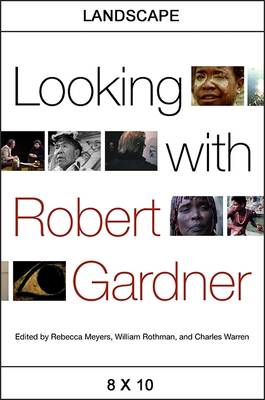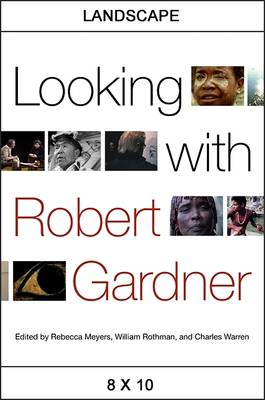
Door een staking bij bpost kan je online bestelling op dit moment iets langer onderweg zijn dan voorzien. Dringend iets nodig? Onze winkels ontvangen jou met open armen!
- Afhalen na 1 uur in een winkel met voorraad
- Gratis thuislevering in België vanaf € 30
- Ruim aanbod met 7 miljoen producten
Door een staking bij bpost kan je online bestelling op dit moment iets langer onderweg zijn dan voorzien. Dringend iets nodig? Onze winkels ontvangen jou met open armen!
- Afhalen na 1 uur in een winkel met voorraad
- Gratis thuislevering in België vanaf € 30
- Ruim aanbod met 7 miljoen producten
Zoeken
Looking with Robert Gardner
€ 46,45
+ 92 punten
Omschrijving
During his lifetime, Robert Gardner (1925-2014) was often pigeonholed as an ethnographic filmmaker, then criticized for failing to conform to the genre's conventions--conventions he radically challenged. With the release of his groundbreaking film Dead Birds in 1963, Gardner established himself as one of the world's most extraordinary independent filmmakers, working in a unique border area between ethnography, the essay film, and poetic/experimental cinema. Richly illustrated, Looking with Robert Gardner assesses the range and magnitude of Gardner's achievements not only as a filmmaker but also as a still photographer, writer, educator, and champion of independent cinema. The contributors give critical attention to Gardner's most ambitious films, such as Dead Birds (1963, New Guinea), Rivers of Sand (1975, Ethiopia), and Forest of Bliss (1986, India), as well as lesser-known films that equally exemplify his mode of seeking anthropological understanding through artistic means. They also attend to his films about artists, including his self-depiction in Still Journey OnM (2011); to his roots in experimental film and his employment of experimental procedures; and to his support of independent filmmakers through the Harvard Film Study Center and the television series Screening Room, which provided an opportunity for numerous important film and video artists to present and discuss their work.
Specificaties
Betrokkenen
- Uitgeverij:
Inhoud
- Aantal bladzijden:
- 352
- Taal:
- Engels
- Reeks:
Eigenschappen
- Productcode (EAN):
- 9781438460505
- Verschijningsdatum:
- 20/09/2016
- Uitvoering:
- Paperback
- Formaat:
- Trade paperback (VS)
- Afmetingen:
- 203 mm x 251 mm
- Gewicht:
- 1088 g

Alleen bij Standaard Boekhandel
+ 92 punten op je klantenkaart van Standaard Boekhandel
Beoordelingen
We publiceren alleen reviews die voldoen aan de voorwaarden voor reviews. Bekijk onze voorwaarden voor reviews.










